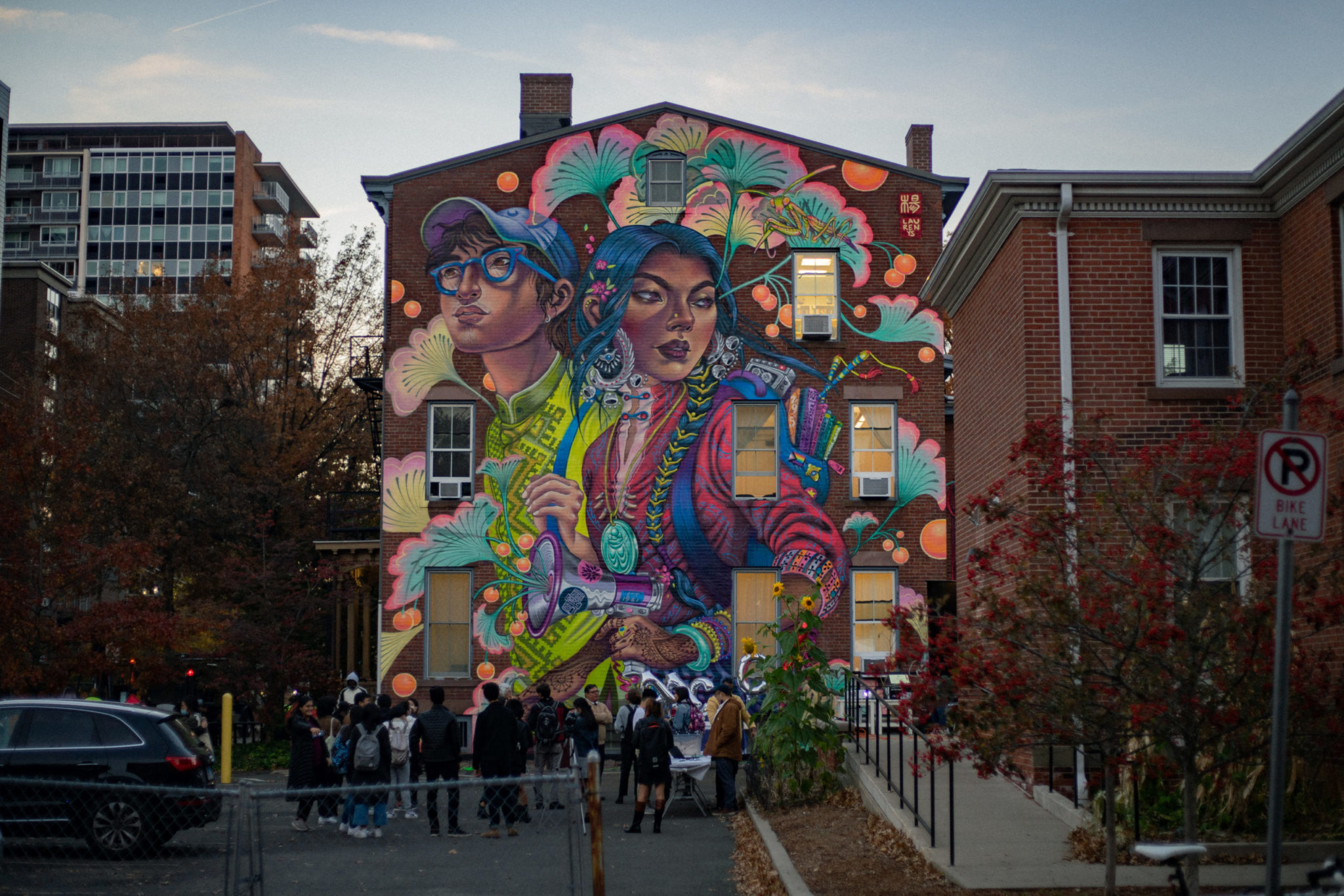Director Crystal Kwok reflects on family history in the American South at talk on campus
While researching her ancestry, Director Crystal Kwok unpacked the Chinese American experiences in America’s racial past through her documentary, “Blurring the Color Line: Chinese in the Segregated South.”

Tenzin Jorden, Photography Editor
To celebrate Pan Asian American Heritage Month at Yale, the Asian American Cultural Center, in partnership with the Afro-American Cultural Center, hosted a screening of Director Crystal Kwok’s “Blurring the Color Line: Chinese in the Segregated South” this Tuesday.
Selected personally by Assistant Dean of Yale and AACC Director Joliana Yee, the hour-long documentary screening was held in the Afro-American Cultural Center. Immediately following was a question and answer session with Kwok, who Zoomed in from the University of Hawaii to answer questions and engage in a discussion about discrimination and race relations between Asian and Asian American and Black communities in the United States.
“This project started as something much more personal about my grandmother, and as things happened in the editing process, the narrative shifted from personal women’s stories to race relations,” said Kwok during the question and answer session. “Shortly after the Black Lives Matter Movement and the Anti-Asian Hate Crimes movement here, I realized I was grappling with two very large forces that made sense in my story, and so my journey was to try to work out what the connections are with the Chinese narrative and Black history.”
An established actress, writer and director in Hong Kong, the documentary places Kwok into the setting of the American South, focusing on her grandmother’s family who were residents and neighborhood grocery store owners in Augusta, Georgia during the Jim Crow Era. Interspersed throughout the documentary are dozens of interviews from her family members and other Chinese and Black residents of her hometown, whose truths weave together a beautifully cohesive narrative of one Georgia community.
Despite the description of her documentary as an “uncomfortable yet necessary” conversation, audience members frequently laughed at the candid humor Kwok expressed in finding shocking tidbits within her family history. Kwok’s own extended family’s shared stories. Some even delve into intimate stories of broken friendships and dysfunctional marital relationships.
Kwok decided to integrate larger themes into her personal story, including anti-Black racism, especially racism expressed by members of her own family. She recognized the impact Chinese patriarchy had on anti-Black racism, using the stories of the women’s survival against patriarchal oppression as a way to integrate her family in the landscape of a predominantly Black community in Augusta, Georgia. Since the majority of the documentary focused on her grandmother Pearl and her sisters, the film quickly became defined by the “lens of the women” through which Kwok explored American history. Large portions of the documentary also discussed dismantling white power.
“I do believe in personal storytelling as a way to understand a deeper history,” Kwok said. “I intentionally decided to focus on the intimate stories of the women because I feel like women have been historically erased from history in many cultures. I wanted to reframe history through their voices.”
Yee expressed her enthusiasm and support for showcasing this documentary as a part of the AACC’s programming for Pan Asian American Heritage Month. In recent years, PAAHM at Yale has been celebrated in March to allow for more students to celebrate and enjoy the full programming led by the AACC. This year is marked by a return to full in-person programming for the first time since the beginning of the COVID-19 pandemic.
Yee selected this specific film because of the increased discussion in recent years regarding Asian and Asian American experiences in the South. Her research on this documentary also reinforced her belief that this film specifically fit into the AACC’s focus on “Celebrating Asian Pride, Power, & Possibilities.”
“[This film] touches on all three topics in different ways. It demonstrates pride for our history; not all of it is perfect, but learning about it, knowing about it and highlighting it as Crystal did really shows a certain level of pride for her heritage,” Yee explained. “In terms of power — it’s really powerful for us to unlock this hidden history, to show that there have been moments of solidarity and also dissension, but it also shows the possibilities of what we can do as a new generation.”
Yee said she hopes that this month serves as a source of visibility and a space for reflection for students who identify as Asian and Asian American. She conveyed her desire for students to actively seek out more knowledge regarding their identities, reinforcing her belief that identity doesn’t necessarily equate with complete understanding.
Yee’s fulfillment of her desires could be seen in the following question and answer session, as attendees and Kwok shared their own personal experiences regarding their Asian and Black histories. Comments ranged from general appreciation for Kwok and her decision to cover such a topic to attendees incorporating their own knowledge and research on racism, race relations and cultural history in America.
“Parts of the film were really great; it was intersectional in the best possible way,” said attendee
Craig Birckhead-Morton ’24. “It’s an idea that in academia, topics can be deradicalized or co-opted, and the way this film mixed racial politics of the Jim Crow Era, the patriarchy and gender oppression, as well as the class analysis was great.”
Information on the rest of the AACC’s programming for Pan Asian American Heritage Month can be accessed here.







